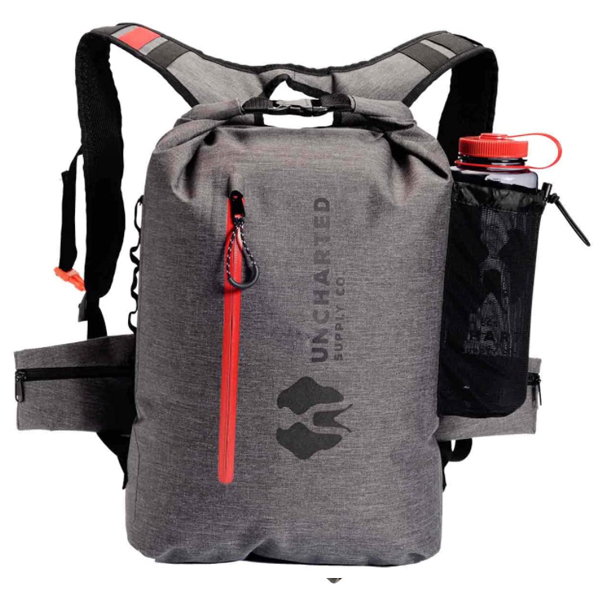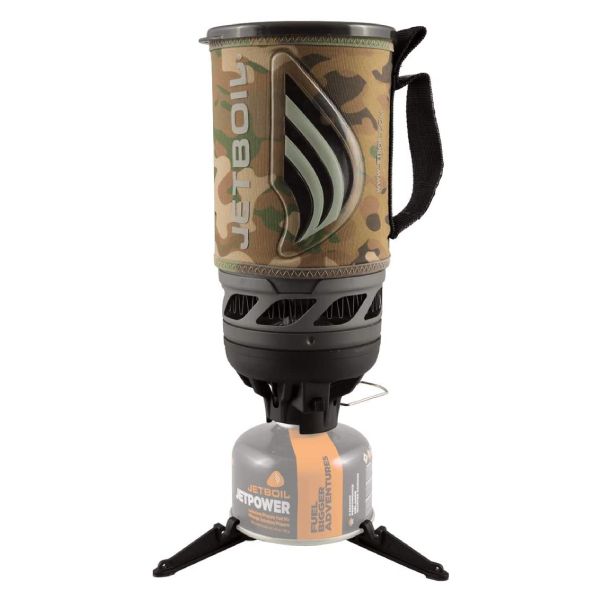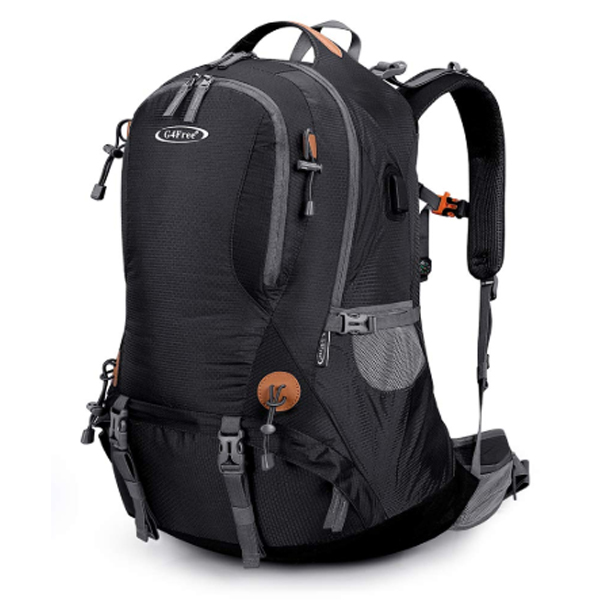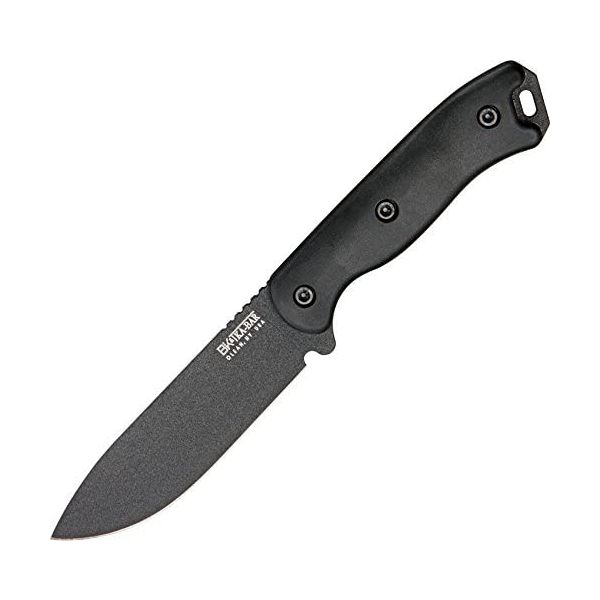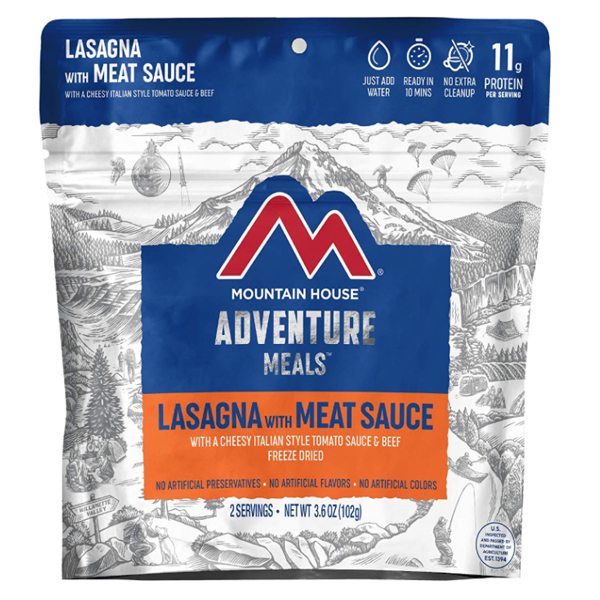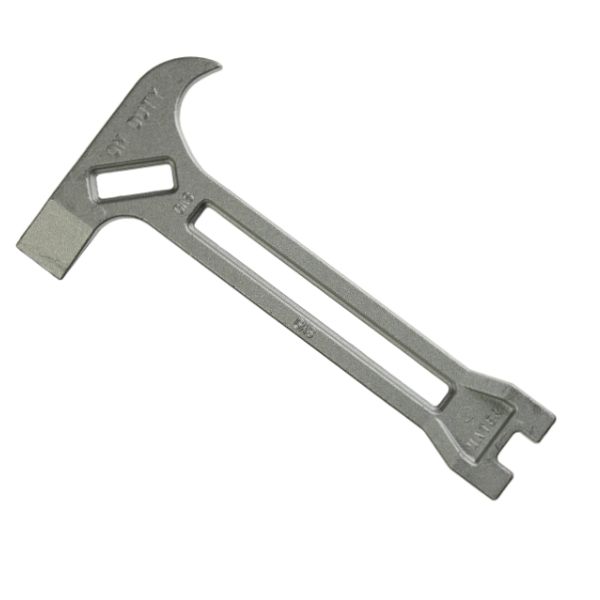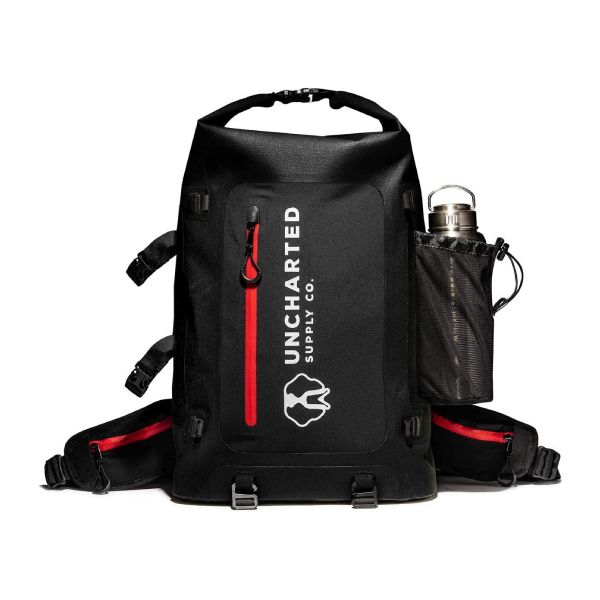Complete Guide to Emergency Preparedness
Emergency Preparedness Is a Mindset
Emergencies happen all the time. We tend to focus on the day-to-day and it can be easy to get caught offguard. Everyone lives where natural disasters can occur including hurricanes, wildfires, earthquakes, tornados, winter storms, etc. Everyone lives where social unrest can flare up. If we were all just a bit disciplined and had some foresight for the rainy day, emergencies would be much easier to manage.
We believe everyone should be a prepper to some degree. Prepping begins as a shift in mindset.
Experience: COVID-19 Destroyed My Business - Here's How We Survived
We interviewed a man who lost his business during the pandemic. We'll call him "Tim". We've summarized the interview below. His story is like so many others from that time. We learned some valuable lessons.
Interviewer: So, how are you holding up?
Tim: It's been a rough ride.
Interviewer: Tell us what happend.
Tim: Well, we were expecting big things from 2020. We had our hospitality services business goals set and we thought it was going to be a banner growth year. Didn't turn out that way. Interesting how some plans aren't meant to be.
In February everything was still stable. In March the wheels started to come off as the hospitality industry crashed. People stopped traveling and revenue dried up all over. May was the most harrowing month of my career. Phone call after phone call with people going out of business or dropping our services. It was devastating and I was paralyzed.
Interviewer: Were you prepared for it?
Tim: Yes and no. It's hard to prepare for instant failure in your business from an emotional perspective. However, our business had some cash on hand and our family had a lot of resources we've built up over the years.
Interviewer: Tell us about your family. I think that's where some lessons are for our readers.
Tim: It so happens we're members of The Church of Jesus Christ of Latter-Day Saints AKA the Mormons. For our whole lives emergency preparedness is drilled into us. The church preaches food storage, education, and being ready for as much as you can. Funny story...I was looking for tooth paste in the storage room as a teenager. I moved some things and uncovered a fifth of Jack Daniels. Mormons don't drink so I approached mom to see which of my parents had a secret bad habit. She told me it was part of her emergency plan. "In bad situation you mighht get an alchoholic who would barter half a beef for a fifth of alchohol." Had to admit that was some advanced prepper thinking.
My wife and I aren't as extreme but for decades we've built up our resources and we regularly go over our preparedness plans.
Interviewer: What are some take aways we should consider for our own sitaution?
Tim: 1. It takes time and some forethought to get to where we are. We have enough grain and other food to last our entire family for a year. We have alternative power sources. We have ways to gather and purify water, stay warm, protect ourselves, communicate, etc.
2. For us it's generational. Our parents taught us so we teach our kids.
3. This isn't the first time we've used our food storage. When we were young I got layed off and had to dip into the supplies to stay out of debt until I found a job and we could recover.
4. I've been called a prepper before in kind of a negative light but we don't see it that way. We prepare for our career by getting an advanced education. We prepare for sports by praticing. We prepare for emergencies by making a plan and storing some resources for a rainy day. I feel really bad for other people I know who don't have some things set aside during this pandemic. It's crazy that people are running out of toilet paper. A little foresight could have made that a non-issue.
Interviewer: You think you'll be OK going forward?
Tim: Don't get me wrong, it's been brutal. We've had to lay people off and really change direction with our business. But, we'll survival. Isn't that the whole point? Make hay when things are great and be prepared to survive when things go south?
The whole point of emergency preparedness is to be ready to survive when things go south. That's the purpose of this site - to help you get ready, put some plans in place to be prepared and explore the gear neccessary for survival.
Lessons of Survival
So what do we learn from Tim's COVID survival story? Should we all have a prepper mindset?
- No one is off limits to emergency situations - Whether it's a pandemic, a hurricane, an earthquake, some other natural disaster, social unrest, we're all at risk. We recently read that some of the weathliest individuals have extensive emergency plans and resources in place including bunkers, food storage, and equipment.
- Being prepared brings a peace of mind - Tim's whole business was destroyed. Yet his demeanor during the interview as one of resolution. He knew he had bought time to get his business back on track.
- Prepping well is a mindset and can take months or years of aquiring supplies and getting trained on how to use them. However, every individual and family has to start somewhere.
- It takes a budget. In a part of the interview we didn't share we learned that Tim has invested a few thousand dollars in food, equipment, and other supplies. He didn't do it all in one shot, they used a monthly budget to add slowly to their stock.
- The whole family has to be on board - If one individual is slowly building up their supplies but another is constantly raiding it things won't go well when it's needed.
About This Article
Content:
Scope:
Difficulty:
Table of Contents
- Emergency Preparedness Is a Mindset
- Lessons of Survival
- Emergency Threats
- Threats to Surviving
- Survival Priorities
- Principles of Preparedness
- Emergency Plans
- Emergency Preparedness for the Home and Family
- Emergency Preparedness for the Office and Work Place
- Emergency Preparedness for School
- Emergency Preparedness for the Outdoors
- Emergency Preparedness for Travel
- Emergency Gear and Supplies
- Principles to Getting Outfitted
- 5 C's of Outdoor Survival Gear
- Gear Training
- Gear and Training
Survival Gear Catalog
Besides having the right mindset and some skills, being prepared usually requires having the right gear and supplies. This site is all about emergency prep gear. We test, research, and regularly use the products on this site. We use them on regular adventures, Scouting events, tactical training, prepper events, etc.
We recommend getting geared up as well as gaining the skills to survive.
Shopping Guidelines
- Buy quality gear - Choose quality gear you can rely on. We're not saying to always pay the most for your purchase - we're saying make sure you don't buy cheap, unreliable gear. You'll need to depend on it at some point.
- Prioritize your purchase - Our checklists prioritize the gear you need. Buy it when it makes sense for your budget. Buy it in order of importance.
- Organize your items - Stow the gear in pouches and packs so you can find it when you need it. Some people use their gear in day-to-day activities. It can wear out and get lost. Make sure you have your quality gear in a place you always expect.
Emergency Threats
There are dozens of types of emergencies. Natural disasters, economic downturns, social unrest, terrorist activites all threaten our well being.
Natural Disasters
Nearly everyone lives in a region that has a common natural threat. Certain areas anticipate hurricanes every year. Some expect wild fires and smoke. Some plan for winter cold. Nearly everyone is at risk during some part of the year.
Pandemic
COVID-19 taught us that a shelter-at-home situation is a real possibility. Being ready with the right supplies (i.e. toilet paper) can make the experience manageable or very stressful.
Accidents
Accidents can come in many forms: fires, chemical spills, power outages, etc. Being ready to shelter-at-home or evacuate the area can mean the difference between life and death.
Economic Downturn
The national economy cycles all the time. Political factors, consumer behavior, news organizations, other countries all impact the economic well being of our country. People who don't prepare for the downturns can suffer great loss.
Social Unrest
People are people. Most of the time we're peace loving. However, political, economic, psychological, and other factors can drive people to protest and riot.
Terrorism
Terrorist groups can do a lot of damage to a society. 9/11 always comes to mind because of its scope. However, there are many other acts of terrorism in our nation's history.
Being prepared against these threats can help us and the ones we love tremendously. Having a plan, the right gear, and some training can make us survivors instead of victims.
Threats to Surviving an Emergency
When an emergency happens our thoughts and actions can make a big difference. Common sense is usually the best tool to survival. However, some factors can really affect our abillity to process information and make solid decisions.
These are some of the factors we may face - of course it depends on the type of emergency:
Fear - Fear is a normal response to a threat. Fear can actually be motivating in a positive way. However, left unchecked, fear can be paralyzing. We should recognize fear and be real about it. Channel the energy into being more alert, aware, and motivated.
Pain - Pain is your bodies way of making you pay attention to something that needs fixed. Be careful and find ways to reduce your chance of injury. Use your first aid supplies and medicines to improve your situation. Do what you can to have a positive outlook and keep working on solutions.
Cold/Heat - Environmental factors can ... Get out of bad elements and get your body to its natural operating temperature. Finding or building shelter and wearing the right clothing can be life saving.
Thirst - Dehydration will impact your bodily functions and mental state. Thirst is a nagging drive that can be distracting and uncomfortable. Finding and purifying water is often a primary survival function.
Hunger - While most people can survive for weeks without food, hunger is psychologically challenging. Like thirst, it nags at the body and makes it difficult to use your head.
Fatigue - Sleep deprivation and fatigue inhibit the mind's ability to make good decisions and drive to push through difficulty.
Boredom & Loneliness - Waiting for rescue or holding tight in a safe location can cause boredom and loneliness. These two factors can impact the decision making process. Patience is sometimes the key factor in surviving.
The psychological factors tied to deprivation are significant. We should try to manage fear and other mental challenges so we can make great decisions.
Book (best seller): Man's Search for Meaning
A Jewish prisoner named Victor Frankle shared his survival of the Nazi consentration camps. He talks in depth about the importance of psychological health in times of duress. People he knew who had purpose and something to work for were much more likely to survive. He could tell when people were in trouble because they would start to do things commonly done by people who had given up.
Victor teaches how we can find purpose and keep our minds healthy even in dire situations.
Survival Threats - Rules of Threes
The survival rules of threes is a common concept in survival methodology. Of course, these are general time frames but the point is well made. You can survive:
- 3 minutes without breathable air
- 3 hours in a harsh environment
(extreme heat or cold) - 3 days without drinkable water
(assuming you are sheltered) - 3 weeks without food
(assuming you have shelter and water)
Survival Priorities
The human mind and body are remarkable. People have survived the most amazing circumstances. Often, prioritizing the right human needs turns a bad situation into a very survivable event.
The following priorities are based on basic human needs. Our plans, decisions and gear should be closely associated with these survival priorities. The survival gear and kits we recommend on this site are guided by these principles.
Air - As a general rule of thumb, we can last around 3 minutes without good air. The need for oxygen makes air the most urgent need.
First Aid/Mental Health - Our bodies are finely tuned systems. We have certain physical requirements do keep it functioning: blood on the inside, infection on the outside, no breaks in the structure, etc. Timely body repair and pain management is critical to our survival.
During an emergency our mental state also makes a huge difference. Fear, loneliness, and depression can be crippling. We should keep a positive, solution-first mindset. We need the ability to make good decisions.
Communication - The ability to communicate with others can be critical. Rescue, collaboration, and social interaction are all reasons to have good communication gear.
Tools - With the right tools you can build shelter, start fire, find food, etc. It's critical to have the right gear on hand during an emergency.
Shelter - Our bodies are somewhat fragil in a bad climate. The elements can threaten us very quickly. We can last only a few hours in extreme cold or heat. Creating or finding shelter can help us move to the next priority.
Warmth - Most areas of the country have climates where cold can really affect a person in the outdoors. Even deserts cool off at nights and have months where day-time temperatures can cause hypothermia. Fire, insulated clothing, etc. can really help.
Water - We can live for days without water. However, the longer we endure thirst the harder it is to make good decisions and keep the body going. We should look for clean water sources as soon as we're able.
Food - We can live for weeks without food. While the nagging feeling of hunger can be a distraction, getting nutrients is considered a relatively low priority. Hopefully we have food storage on hand for immediate consumption. Hunting, fishing, foraging, growing crops are all options for longer term plans.
Hygiene - Have you ever used leaves for toilet paper? It's not a great experience. Personal hygiene and comfort items can make a world of difference.
Self Protection - Defending ourselves from animals, insects, other humans can be a priority depending on the emergency situation. Typically self defense is a low priority.
Extra Clothing - Changing clothes to clean the ones on your body improve your hygiene to keep you healthy. Extra clothes for insulation can keep you warm out of the elements.
Container - Keeping your survival gear modular and portable is key. You may need to evacuate or relocate to find new resources or escape danger.
You'll see this list on many of our emergency kit pages. These priorities direct our decisions on the gear we choose to recommend.
Survival Priority List
Priortize your gear and supplies based on this list.
- Air
- First Aid/Mental Health
- Communication
- Tools
- Shelter
- Warmth
- Water
- Food
- Hygiene
- Self Protection
- Extra Clothing
- Container
Survival Priorities Explained
Principles of Preparedness
We've reviewed the basic threats and needs we may see in an emergency. Preparing for survival is critical. Here are some principles to consider as you get ready.
- Preparing takes forethought - The moment a catastrophe happens is NOT the time to prepare. In times when things are good we should get ready. Put plans in place and determine what resources you might need.
- Preparing requires a plan - Know what you might do, what resources you have, and who you need to interact with in an emergency. Create an emergency plan for many scenarios and review it with your household or organization.
- Preparing requires a budget - Gear and supplies can be pricey. Set aside a monthly budget to begin acquiring your emergency gear.
- Preparing requires gear and supplies - Emergencies that require evacuation from your home are common. Having portable gear and supplies packed and ready can help you get out quickly and help you have what you need.
- Preparing requires training - First aid supplies and some survival gear can require some training. Learning to use a ferro-rod to start a fire can be very discouraging. Get at least basic first aid and gear training.
As you prepare you'll likely put together an emergeny plan. It should be customized to service the basic human needs of all individuals in your household. Emergency gear should be stocked with these needs as the top priority and easy to access.
In times of survival having the right plan, effective gear, and a purpose greatly improves the odds.
Famous Quotes
"By failing to prepare, you are preparing to fail."
-- Benjamin Franklin
"An ounce of prevention is worth a pound of cure."
-- Benjamin Franklin
Emergency Plans
Foresight can prepare you and your household for a lot of different scenarios. While we can't dream up every situation, exploring an emergency when we're sitting in the comfort of a peaceful home can help us make important decisions when the stress hits high levels.
Experience: Family Nights
Every Spring we take a night or two and make treats and sit down as a family. We review our emergency plans for common threats in our area. We create a number of scenarios and make each person a character. We give them a setting (injuries, locations, situations, etc) and we all try to get home or get to safety. Here are some of the scenarios we set up:
- house fire
- power outage
- winter storm
- broken down car during winter
- wind storm
On occasion the topics get kind of silly (killing people off, nuclear fallout, etc) but at least we've thought through some of the decisions we might have to make and we've created some expectations on how to find each other and keep one another safe.
So, what's an emergency plan consist of? There's no one strict answer. Every region has its threats and resources. Every household is unique with unique needs. We live in a forested area with a lot of water. However, it gets cold in the winter and has very short days. Wind storms mean falling trees and non-stop Spring rain can make for some miserable survival conditions.
Our current region is much different than when we lived in Las Vegas. It was hot, dry and everything in the desert either bit or poked you. The challenges were much different and the solutions were too.
Here are some guidelines to form an emergency plan for your household:
- Ask yourself what threats are common or likely in your region (review our list of possibilities). Go through each one on your list to see how severe they could get.
- Walk through each likely scenario with each threat and have the household make some decisions. Consider:
- will you need to leave home?
- what gear will be needed?
- will any cash be needed?
- how will you communicate with each other?
- how will you travel?
- how will you carry your gear?
- is there some meeting place that make sense?
- how will everyone be protected?
- will any resources you have be sought after by other people?
- who can you collaborate (church, government, other family/friends) with to pool resources and skills?
- what skills do you need (first aid, outdoor cooking, tent set up, etc)?
- will the threat cause social unrest causing you to flee?
- Make a list of gear and supplies you need
- Make a budget and timeframe to aquire the gear and supplies. Make sure to prioritize the important things at the top of the list.
- Organize your gear.
- Train the household or organization on how to use the gear.
- Review your emergency plans and gear at least annually.
It likely makes sense to create emergency plans for a number of settings besides your household:
Emergency Preparedness for the Home and Family
Make a preparedness plan that includes all of the individuals in your household. Since the focus is on family, consider including kids at college or other places away from home. Consider transportation, communication and gear requirements. Also consider medications, fuel needs, and more.
Emergency Preparedness for the Office and Work
Emergencies can happen while at work. I'm reminded of where I was on 9/11. I'm reminded of coworkers having seizures, getting cut, and having bloody noses. Perhaps planning for an emergency for many staff has as large of an impact as planning for family.
Emergency Preparedness for School
I spent 2 years in Mexico city. While I was there I experienced 3 large earthquakes. During one of them, people poured out of their homes when the quake finished and flocked to the school to make sure their kids were fine.
School administrations should have emergency plans for their school. Their top priority should be protecting their students.
Emergency Preparedness for the Outdoors
If you've spent any time in the outdoors, you learn very quickly what "roughing it" means. Living without the comforts of modern society can get old quickly. Roughing it for a long period of time can really wear on your psyche.
Emergency Preparedness for Travel
Leaving home usually means limiting yourself to resources and supplies. Breaking down in a snow storm can have real consequences. The key is to have a plan and the right gear and supplies.
Emergency Preparedness Resources

Popular Emergency Checklists
All | Bug Out Bag | 72-Hour Kit |
Evacuation | First Aid
Scouting - Wilderness First Aid
Emergency Plan (ready.gov)
Emergency Contact Info (ready.gov)
Emergency Plan for Schools (ready.gov)
Emergency Facts
Economic Emergency: In the first 6 months of the COVID-19 Pandemic: "Overall, 25% of U.S. adults say they or someone in their household was laid off or lost their job because of the coronavirus outbreak, with 15% saying this happened to them personally." - Pew Research
Evacuation: "Tropical cyclones significantly interrupt infrastructure, leading to power outages, bridge destruction, and the hampering of reconstruction efforts. On average, the Gulf and east coasts of the United States suffer approximately US$5 billion in cyclone damage every year." - Wikipedia
Evacuation and Destruction: "Almost 19,000 structures (including homes) destroyed by the Camp Fire wildfire in California in 2018." - Wikipedia
Emergency Gear and Supplies
Once a plan is in place for each setting, aquiring the right survival gear and supplies is the next critical step. Having the right gear can often be the difference between making it or not.
Book Review: Hachet
My son found a book at his school library called Hatchet. It's one of his favorites. It's about a boy who goes on a trip in a small airplane. When the pilot dies the plane crashes and sinks in a lake. It chronicles his survival with a hatchet he received as a gift. While the story is fictional, it illustrates the constant struggle to find food, keep warm, and stay protected. It highlights the psychological impacts of needing to constantly produce and do so alone with very limited tools and resources.
Keeping your head, following common sense and having the right gear can make survival that much more feasible.
Here are the principles to getting outfitted:
- Get started - make a list and prioritize it. Get the most important supplies first. Store them and commit to not raid them unless it's a true emergency. If you have to use them, replenish them later
- Make a budget - emergency gear and supplies can add up in cost. Kits, food, first aid, etc really adds up. You might spend a few thousand dollars to get it all. Create a monthly budget and buy based on your priority list. You'll be surprised at how quickly things start to come together when you are deliberate about getting outfitted.
- You get what you pay for (most of the time) - Some gear seems like a good deal but turns out to be shoddy. Many ready-made emergency kits are full of junk. We've bought some of the kits to test the gear. Some are completely unreliable. While you can build up your gear on a budget, don't go cheap on some things. Highly rated water filters are a must have. A quality multi tool and knife are a must have. There are so many gimicks. Don't waste your money on something that doesn't get the job done. You need to rely on good gear when the going gets tough.
- Protect your gear - I heard a quote one time that really stuck with me: "sometimes the have-nots are the ones you have to worry about the most." Don't advertise your preparedness. Don't boast or put it on display. I'm not saying don't share when needed. I'm saying don't make yourself a target.
- Consider mobility - some emergencies require you to leave home. How much can you take? How will you carry it?
It may seem daunting to acquire gear for survival. We're here to help. Here are some articles to get you started:
- Emergency Essentials
- Complete guide to emergency kits
- Comparing Emergency Kit Companies and Their Products
- Complete Survival System (advanced)
Emergency Essentials
Most emergencies require the following gear and supplies:
- Gear - you need the tools to filter water, start fire, build shelther, stay dry, etc.
- First Aid - you need to be able to repair your body when injured or sick.
- Toiletries - you need to stay clean with good hygiene.
- Food - whether it's ready to eat or part of long-term storage, you'll appreciate having food on hand.
- Extra Clothes - stay warm and clean with extra clothes.
5 C's of Outdoor Survival Gear
Some emergencies require survival outdoors. The right survival gear can be critical to enduring an emergency situation when you're forced to the outdoors. Preppers often prioritize aquiring outdoor gear in the following order:
- Cutting - A knife is often considered the most important tool in a survival situation. It can be used to source food, prepare wood for cooking and heat, create shelter, protect as a weapon, etc.
- Combustion - Fire is key to survival in so many situations. It can be used for warmth, cooking, light, protection, signaling, etc.
- Cordage - Paracord, rope, and other cordage is essential for survival. It can be used for shelter, gear stowage, fire tinder, first aid, mobility, etc.
- Container - Bags, packs, bins, etc are key for mobility. During an emergency situation it's important to be flexible in your location. The ability to move your gear is a must.
- Cover - Sheltering from the elements can be a life or death decision. Having shelter from rain, snow, sun, wind, etc. can keep you comfortable and healthy.
Emergency Kits
Emergency Supplies
Hand Crank/Solar Rechargeable AM/FM/SW Radio, LED Flashlight, Power Bank - Rugged
Emergency hand crank/solar powered energy source, radio, LED flashlight
Buy on AmazonMilitary Wool Blanket - L
L, 66 x 90 in
Full, 1-person
Generic military wool blanket for emergencies and the outdoors
Buy on AmazonPopular Survival Products
Emergency Training
Now you have plan. Now you have gear. Now you need to know how to use that gear and gain some skills you can use.
Experience: Boy Scouts in Action
Last month my son and I went on an overnighter backpacking trip with a local Boy Scout troop. We've been involved with these boys since my son was young. On this particular campout my attention was drawn to how self sufficient these boys had become. They had packed their own packs, chosen their own food and gear, and chosen the location. They set the time, lined up rides, and set it all up.
As we sat around the campfire on a mountain peak watching the sunset they started to cook dinner. They all had meals they had prepared on other outings. They started the fire and pulled out a few stoves. They handled their knives and cookware like pros. Within 15-20 minutes tinfoil dinners simmered, brats sizzled, and ready made meal pouches steamed. Not one of them asked for help - it just happened.
I'm pretty confident we could spend a significant period of time with these boys in the outdoors and we'd be just fine.
It makes a lot of sense to spend some time to get trainined on your emergency gear. Whether your an avid prepper or just have the basics, being comfortable with your gear can make a huge different when things get tough. Here are some resources for getting trained:
- Trial and error - can you start a fire? can you set up a tent? can you build a snow cave? Sometimes the best way to learn is to jump in and try it.
- Youtube - you can find a ton of survival resources on just about any topic you can think of.
- Scout troops - the scouts will you show you what to do. You can engage with their leaders to set up a training - it's great practice for them.
- Fire departments - you can set up training sessions for first aid and other topics with your local fire department.
- The Prepper Guy - We've lived in a number of towns and cities. In everyone we've bumped into THAT guy. He's the guy who knows everything about prepping. He's the guru and he LOVES to share his knowledge. We know a guy now who lives in a home he affectionately calls the "Ark". He's more savvy than any prepper I've ever met and he wants to educate everyone about it. While I don't agree with everything he says (we'll talk about his "shoot, move, communicate" concept somewhere else), I've learned so much from him in a few conversations. He's ex-EMT, ex-fire fighter, ex-community emergency planner.
- C.E.R.T - a lot of community planning organizations have a C.E.R.T program where they send trainers out to engage with organizations. We had them come and train our church group. They helped us put together a plan, trained us and gave us some useful gear.
- Survival Courses - there are dedicated training courses you can take. Some are in person and some are online.
Training Resources
- Get CPR Trained Tips:
- Consider the class on babies and babysitting
- Have your employees take the trainings
- Get C.E.R.T trained Tips:
- The C.E.R.T Program is a community emergency prep program supported by a number of cities.
- Request they train your organization. They like church groups, Boy Scouts, service clubs, etc.
- When we went through the program we did it in the evenings after work. We met a couple of time a week for a month or two.
- Boy Scouts Tips:
- Buy the Boy Scout Handbook to learn as an adult. You can find so many survival tips and lifeskills.
- The Scout program is undergoing a rough time right now. However, the program itself is still one of the best programs for young men.
- Start the boys early. My son was an on fire going through this program. He got his Eagle by age 13. It's a good thing - his sports and other activities pulled him away pretty quickly after he finished.
Be Prepared with the Right Gear and Training
We're all at risk. Being prepared can make all the difference in an emergency situation. Makes sense to be a prepper at any number of levels. Pandemics, natural disasters, and social unrest are all reasons to be ready.
Spend time making your preparedness plan, aquiring the right gear and getting trained on how to use it. We've found that being prepared helps us not live in fear because we can be confident we know what to do and how to do it if things go sideways.
1This post may contain affiliate links. If you make a purchase, I may earn a small commission at no additional cost to you.
2 As an Amazon Associate we earn from qualifying purchases.
3 Most reviews are based on personal experience from one of our content editors. Some are based on research and the opinions of other reviewers.






